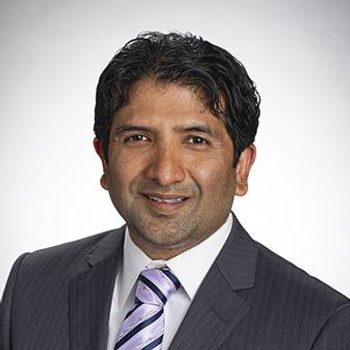Enlarged Liver Overview
Learn About Enlarged Liver
During a routine physical exam or on an imaging study for an unrelated issue, your doctor might tell you that you have an “enlarged liver.” This finding, known medically as hepatomegaly, can be a source of immediate concern, raising questions about serious liver diseases. It is crucial to understand that an enlarged liver is not a disease itself. Rather, it is an important physical sign, a warning from your body that your liver is under stress, fighting an infection, or has been infiltrated by abnormal cells or substances. Discovering that you have an enlarged liver is the starting point for a necessary medical investigation to uncover and treat the root cause, which is key to protecting the long-term health of this vital organ.
Hepatomegaly is the medical term for a liver that has swollen or grown beyond its normal size. The liver is the largest solid organ in the body, a complex and powerful factory located in the upper right quadrant of the abdomen, tucked safely behind the lower ribs. It performs over 500 vital functions, including:
- Filtering toxins and waste products from the blood
- Producing bile, which is essential for digesting fats
- Making critical proteins like albumin and blood clotting factors
- Storing energy in the form of glycogen
In a healthy adult, the liver is typically not palpable, meaning a doctor cannot feel its edge below the rib cage. When the liver becomes enlarged, its lower edge may extend down into the abdomen where it can be felt.
The liver can become enlarged through several main mechanisms:
Inflammation (hepatitis)
- Liver cells (hepatocytes) are injured by a virus, a toxin like alcohol, or an autoimmune attack, causing the liver to swell.
Infiltration
- The liver can become enlarged when abnormal substances accumulate. This can include excess fat (steatosis), abnormal proteins, or cancerous cells.
Congestion
- The liver may swell when blood or bile flow is blocked, causing the organ to engorge with fluid.
An enlarged liver is always a consequence of an underlying medical condition. The list of potential causes is vast, ranging from common, reversible conditions to serious, chronic diseases.
Common causes related to liver disease
- Steatotic liver disease (fatty liver disease): One of the most common causes worldwide, when excess fat builds up in the liver.
- Metabolic dysfunction-associated steatotic liver disease (MASLD): Formerly NAFLD, linked to obesity, type 2 diabetes, and high cholesterol.
- Alcohol-associated liver disease (ALD): Caused by excessive alcohol consumption, leading to fat deposition and inflammation.
- Viral hepatitis: Hepatitis A, B, and C are major causes of hepatomegaly.
- Alcoholic hepatitis: Severe inflammation from heavy alcohol use.
- Cirrhosis: In early stages, the liver may be enlarged before shrinking in later stages.
Infectious causes (non-hepatitis viruses)
- Infectious mononucleosis: Caused by the Epstein-Barr virus.
- Cytomegalovirus (CMV)
- Parasitic infections: Such as malaria or amoebic liver abscesses.
Cancers
- Metastatic cancer: Cancer from another organ spreads to the liver.
- Primary liver cancer (hepatocellular carcinoma): Often a complication of chronic cirrhosis.
- Blood cancers: Leukemia and lymphoma can infiltrate the liver.
Congestive causes
- Congestive heart failure: Blood backs up into the liver.
- Budd-Chiari syndrome: Blood clots block veins draining the liver.
- Bile duct obstruction: Causes bile to back up and enlarge the liver.
Hepatomegaly develops because of an underlying disease. Therefore, the risk factors for an enlarged liver are the risk factors for these various conditions.
You are at higher risk if you:
- Drink excessive amounts of alcohol
- Are overweight or obese with metabolic syndrome (high blood pressure, high cholesterol, insulin resistance, or type 2 diabetes)
- Have chronic viral infections such as hepatitis B or C
- Have a family history of autoimmune disease
- Have cancer that can spread to the liver
- Have congestive heart failure
Many people with mild hepatomegaly have no symptoms. It is often discovered during a physical exam or imaging study for another reason.
When symptoms occur, they may include:
- A feeling of fullness or discomfort in the upper right abdomen
- Dull, aching pain in the same area
Symptoms from underlying liver disease can include:
- Fatigue
- Nausea or loss of appetite
- Jaundice (yellowing of skin and eyes)
- Dark urine
- Ascites (fluid buildup in the abdomen)
- Edema (swelling in legs and ankles)
- Easy bruising or bleeding
Finding hepatomegaly is the first step in diagnosing the cause. The process usually involves:
Physical exam: Palpation or percussion to assess liver size.
Blood tests:
- Liver function tests (LFTs) to measure enzymes and bilirubin
- Viral hepatitis panel
- Complete blood count (CBC)
- Specialized tests such as iron levels or autoimmune markers
Imaging tests:
- Ultrasound to assess size and texture
- CT or MRI for detailed images of lesions or blood vessels
Liver biopsy: If needed, to confirm diagnosis of conditions like autoimmune hepatitis, fatty liver disease, or cancer
Treatment focuses on addressing the underlying cause rather than the hepatomegaly itself.
- Alcohol-associated liver disease: Complete abstinence from alcohol
- Metabolic fatty liver disease (MASLD/MASH): Weight loss, diet, exercise, and management of diabetes and cholesterol
- Viral hepatitis: Antiviral medications
- Autoimmune hepatitis: Immunosuppressive medications
- Cancer: Oncology-led management with chemotherapy, radiation, or surgery
- Heart failure: Medications to support heart function and reduce fluid overload
If the root condition is treated successfully, the liver often returns to normal size.
Hepatomegaly, or an enlarged liver, is not a disease but a sign that the liver is under stress. It is a warning that conditions such as fatty liver disease, alcohol-related injury, or viral infection are affecting this vital organ. An enlarged liver should never be ignored, as it signals the need for medical investigation and treatment. By identifying and addressing the underlying cause, patients can support liver healing and protect long-term health.
- The Mayo Clinic. (2024). Enlarged liver. Retrieved from https://www.mayoclinic.org/diseases-conditions/enlarged-liver/symptoms-causes/syc-20372167
- The Cleveland Clinic. (2022). Hepatomegaly (enlarged liver). Retrieved from https://my.clevelandclinic.org/health/diseases/17191-hepatomegaly-enlarged-liver
- American Liver Foundation. (n.d.). A guide to a healthy liver. Retrieved from https://liverfoundation.org/liver-health-wellness/a-guide-to-a-healthy-liver/
Frederik Nevens is a Hepatologist in Leuven, Belgium. Mr. Nevens is rated as an Elite expert by MediFind in the treatment of Enlarged Liver. His top areas of expertise are Primary Biliary Cholangitis, Enlarged Liver, Cirrhosis, Liver Transplant, and Pancreaticoduodenectomy.
Duke Endoscopy Clinic - Clinic 2H
Lindsay King is a Hepatologist and a Transplant Surgeon in Durham, North Carolina. Dr. King is rated as a Distinguished provider by MediFind in the treatment of Enlarged Liver. Her top areas of expertise are Visceromegaly, Autoimmune Hepatitis, Enlarged Liver, and Hepatitis. Dr. King is currently accepting new patients.
Advocate Heart Institute
Ali Valika is an Advanced Heart Failure and Transplant Cardiologist in Downers Grove, Illinois. Dr. Valika is rated as a Distinguished provider by MediFind in the treatment of Enlarged Liver. His top areas of expertise are Heart Failure, Heart Failure with Preserved Ejection Fraction (HFpEF), Pulmonary Edema, and Dilated Cardiomyopathy (DCM).
Summary: Obesity is a major public health problem and is constantly on the rise. Therapeutic approaches based on dietary advice, physical activity and the management of psychological difficulties are not always sufficient to achieve a lasting weight reduction. Bariatric surgery (or obesity surgery), accompanied by therapeutic education and adequate medical and dietary monitoring, can lead to significant an...
Summary: This study compares the effectiveness of the dietary supplement Gepaktiv with standard medications (UDCA and Ademetionine) in patients with fatty liver disease (MAFLD) and liver enlargement (hepatomegaly). Key points: * Participants will receive either Gepaktiv, UDCA, or Ademetionine for 15 days * Doctors will monitor liver health through blood tests and ultrasound scans * The study will check if ...


